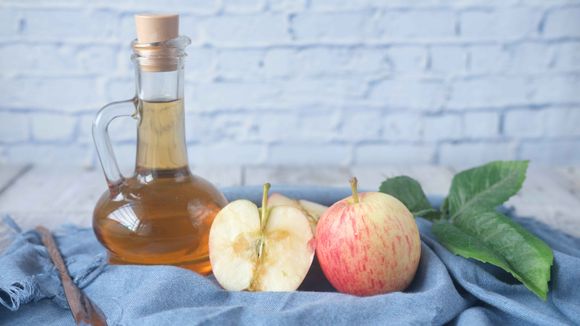Natural remedies
Aloe Vera (Aloe barbadensis Miller)
Aloe vera is a succulent plant known for its moisturizing and soothing properties. It's rich in vitamins, minerals, and enzymes that help reduce inflammation and promote healing. Applying aloe vera gel directly to the affected area can provide immediate relief from itching and redness (1).
Tea Tree Oil (Melaleuca alternifolia)
Tea tree oil is an essential oil derived from the leaves of the Melaleuca alternifolia tree. It possesses powerful antifungal and anti-inflammatory properties that can help treat seborrheic dermatitis by combating the yeast-like fungus Malassezia, which is believed to contribute to the condition (2).

Photo by Towfiqu barbhuiya on Unsplash
Apple Cider Vinegar (ACV)
Apple cider vinegar is a natural astringent and antifungal agent, which can help restore the scalp's pH balance and reduce flaking. Diluting ACV with water and applying it to the scalp can provide relief from itchiness and redness (3).
Calendula (Calendula officinalis)
Calendula, also known as pot marigold, is a flowering plant with anti-inflammatory and antimicrobial properties. Its flowers can be infused in oil and applied topically to soothe seborrheic dermatitis symptoms (4).
Chamomile (Matricaria chamomilla)
Chamomile is a flowering plant known for its calming and anti-inflammatory properties. It can be used in the form of tea, oil, or poultice to alleviate redness and itching associated with seborrheic dermatitis (5).
Home Preparation Recipes
Aloe Vera Gel
Cut a leaf from an aloe vera plant, remove the skin, and extract the clear gel. Apply it directly to the affected area, and leave it on for at least 30 minutes before rinsing it off.
Tea Tree Oil Scalp Rinse
Mix 5-10 drops of tea tree oil with a carrier oil (e.g., jojoba or almond oil) and massage it into your scalp. Leave it on for 10-15 minutes before rinsing with a mild shampoo.
Apple Cider Vinegar Rinse
Mix equal parts apple cider vinegar and water, and pour the mixture over your scalp after shampooing. Leave it on for 5 minutes before rinsing it off with cold water.

Photo by Timothy L Brock on Unsplash
Calendula-Infused Oil
Fill a jar with dried calendula flowers and cover them with a carrier oil (e.g., olive or almond oil). Close the jar and let it sit in a dark, cool place for 2-4 weeks, shaking it occasionally. Strain the oil, and apply it to the affected area.
Chamomile Tea Poultice
Brew a strong chamomile tea, and soak a clean cloth in the warm tea. Wring out the excess liquid, and place the cloth on the affected area for 10-15 minutes.
Questions and Answers
Q: Can diet play a role in seborrheic dermatitis?
A: Yes, diet can impact seborrheic dermatitis. A balanced diet rich in anti-inflammatory foods, such as omega-3 fatty acids, can help manage inflammation and improve overall skin health.
Q: How often should I use these herbal remedies for seborrheic dermatitis?
A: The frequency depends on the specific remedy and the severity of your symptoms. It's best to start with a lower frequency and adjust based on your skin's response. Consult with a healthcare professional for personalized advice.
Q: Are there any potential side effects of using these herbal remedies?
A: Generally, these remedies are considered safe when used as directed. However, some individuals may experience allergic reactions or skin irritation. Perform a patch test before using a new remedy and consult a healthcare professional if you experience any adverse effects.
Q: Can I use these remedies alongside conventional treatments for seborrheic dermatitis?
A: It's essential to consult with a healthcare professional before combining herbal remedies with conventional treatments to ensure their compatibility and avoid potential interactions.
Q: Is it possible to prevent seborrheic dermatitis from recurring?
A: While it's challenging to prevent seborrheic dermatitis entirely, maintaining a healthy scalp and practicing good hygiene can help minimize flare-ups. Regular use of gentle, natural remedies may also help keep symptoms at bay.
Referrals
- Surjushe, A., Vasani, R., & Saple, D. G. (2008). Aloe vera: A short review. Indian Journal of Dermatology, 53(4), 163-166.
- Satchell, A. C., Saurajen, A., Bell, C., & Barnetson, R. S. (2002). Treatment of dandruff with 5% tea tree oil shampoo. Journal of the American Academy of Dermatology, 47(6), 852-855.
- Yagnik, D., Serafin, V., & Shah, A. J. (2018). Antimicrobial activity of apple cider vinegar against Escherichia coli, Staphylococcus aureus and Candida albicans; downregulating cytokine and microbial protein expression. Scientific Reports, 8(1), 1732.
- Preethi, K. C., & Kuttan, R. (2009). Wound healing activity of flower extract of Calendula officinalis. Journal of Basic and Clinical Physiology and Pharmacology, 20(1), 73-79.
- Srivastava, J. K., Shankar, E., & Gupta, S. (2010). Chamomile: A herbal medicine of the past with a bright future. Molecular Medicine Reports, 3(6), 895-901.









